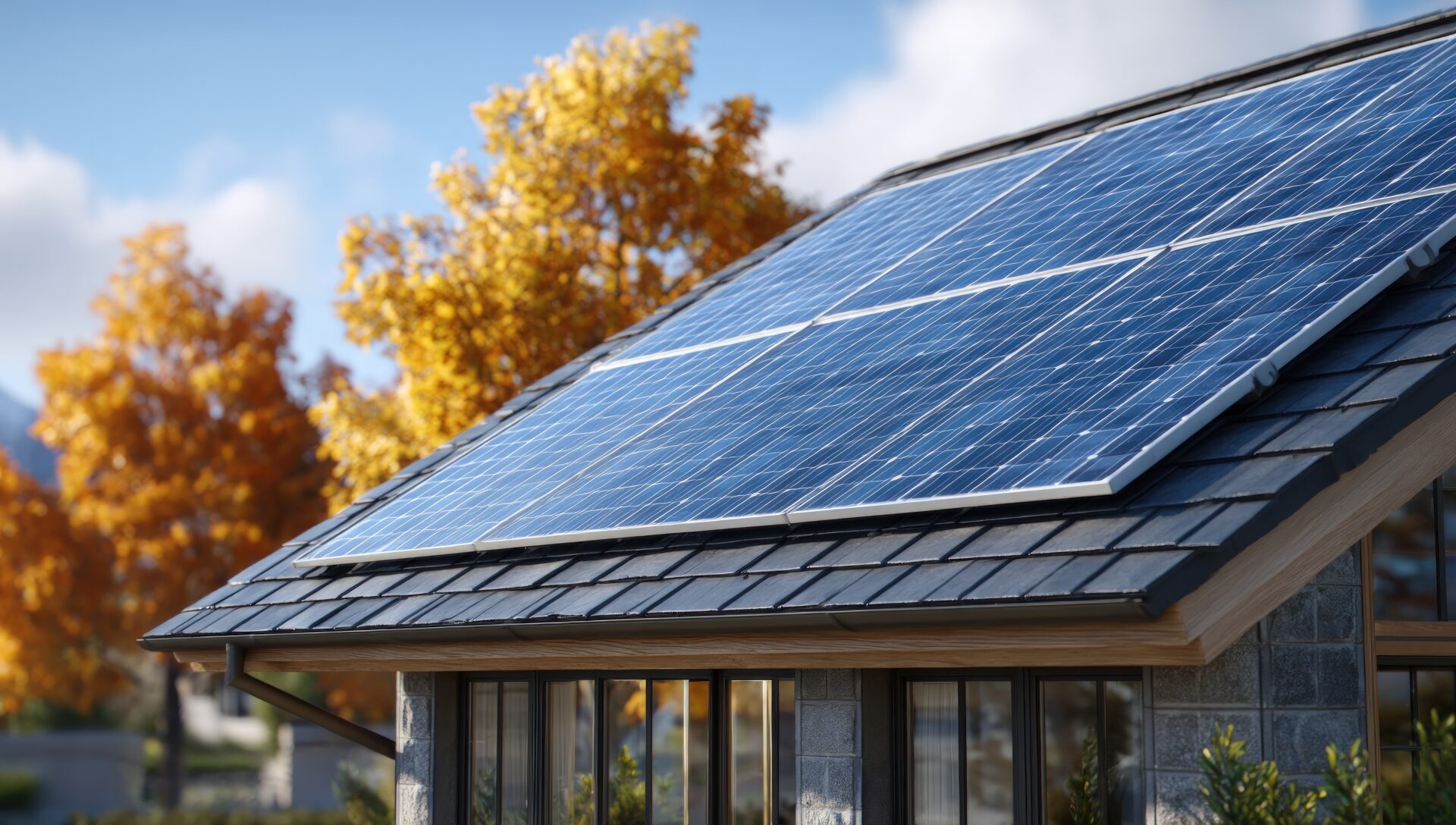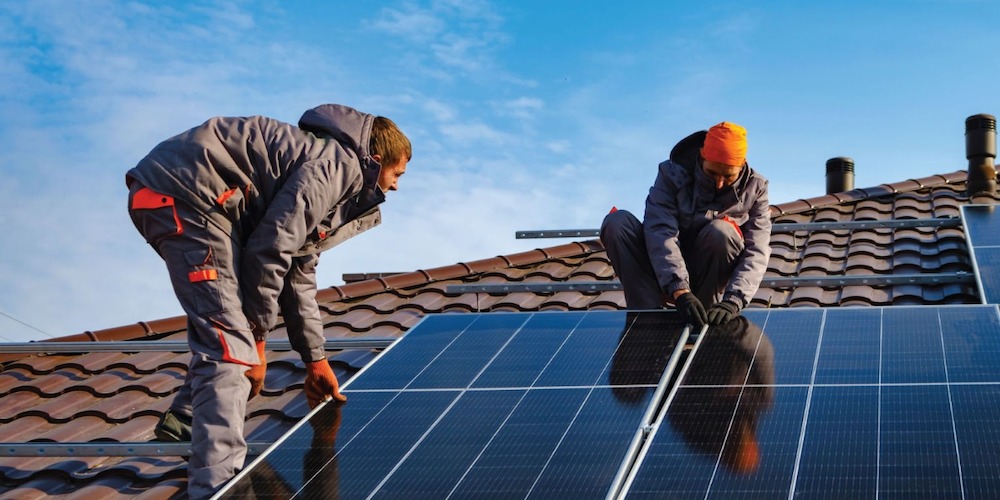Residential Solar Installation: Step-by-Step Process
Wiki Article
Understanding the Benefits of Solar Panels: Why They Are a Smart Investment
Solar panels offer a compelling instance for home owners looking for ecological and economic advantages. They can substantially lower power prices while enhancing residential or commercial property worth. Federal government incentives additionally improve their allure, making first investments a lot more convenient. As worldwide power concerns expand, the adjustment in the direction of sustainable sources comes to be significantly significant. Understanding these advantages is essential for any individual considering this shift. What aspects should be considered prior to making such a significant commitment?Financial Financial Savings Via Minimized Energy Expenses
As property owners progressively look for ways to decrease costs, the financial advantages of solar panels end up being obvious with minimized energy expenses. By using the sunlight's power, residential solar systems generate power that can considerably cut and even remove regular monthly utility prices. This decrease is specifically beneficial as electrical power prices continue to increase, allowing property owners to secure in reduced energy rates.
In lots of areas, property owners can likewise expect a rise in property value, as potential purchasers typically view solar panels as a desirable attribute. Inevitably, solar panels stand for a critical monetary decision, offering both prompt financial savings and long-term financial benefits.
Government Rewards and Tax Advantages
Federal government motivations and tax obligation benefits play a vital function in the fostering of photovoltaic panels. Federal tax obligation credit scores and different state reward programs considerably minimize the ahead of time prices for property owners and businesses. These financial supports not only motivate financial investment in eco-friendly energy however additionally add to lasting financial savings.
Federal Tax Credits
Federal tax credit histories work as a substantial monetary motivation for property owners and businesses thinking about the installation of photovoltaic panels. Solar Installer. These credit ratings, largely provided with the government Investment Tax Credit scores (ITC), enable people to deduct a percentage of the cost of their solar power system from their federal tax obligations. As of 2023, the ITC uses a 30% credit scores, making solar power much more cost effective and attractive. This tax advantage not only reduces the in advance financial concern but additionally accelerates the roi. By making the most of federal tax credit histories, homeowner can improve their overall savings, making solar energy systems a monetarily wise choice. Such incentives play a necessary function in promoting renewable resource fostering across the countryState Incentives Programs
Along with government tax obligation credit ratings, several states provide their very own reward programs focused on motivating the fostering of solar power. These programs can take numerous types, consisting of discounts, performance-based incentives, and tax credit scores that better reduce the general expense of solar panel setup. States such as California, New York City, and Massachusetts have actually carried out durable programs made to boost availability to solar modern technology. Additionally, some states offer internet metering policies, permitting homeowners to get credit histories for excess power created by their solar systems. These rewards not only promote ecological sustainability however likewise make solar power more monetarily practical for customers. Comprehending and leveraging these state rewards can substantially enhance the roi for solar power systems.Increase in Residential Property Value
Solar panels not only add to ecological sustainability yet likewise enhance the value of houses. Property buyers significantly look for energy-efficient features, making solar installments an eye-catching selling point. Research study indicates that homes furnished with solar panels can regulate higher list price compared to similar properties without them. This pattern is driven by increasing power prices and expanding recognition of renewable energy advantages.Furthermore, possible purchasers often regard solar-equipped homes as more modern-day and appealing, converting into quicker sales and reduced time on the market. The first financial investment in solar technology can generate significant returns via boosted residential property value, frequently recovering much of the installation cost at resale. In areas with desirable solar incentives, the value increase can be also more noticable. In general, solar panels represent not only a dedication to energy self-reliance yet also a calculated economic decision for property owners aiming to enhance their residential or commercial property's marketability.
Ecological Influence and Sustainability
The combination of solar panels right into homes substantially contributes to a decrease in carbon footprints and advertises ecological sustainability. By harnessing power from the sun, solar panels create electrical energy without producing hazardous greenhouse gases, substantially lowering dependence on nonrenewable fuel sources. This change to renewable resource resources assists mitigate the negative effects of environment modification, shielding environments and biodiversity.Furthermore, solar energy systems call for very little water for procedure contrasted to standard power generation approaches, which frequently deplete useful water sources. The longevity of solar panels, usually lasting 25 years or even more, even more highlights their sustainability, as they generate tidy power throughout their life-span with marginal ecological effect.
The manufacturing and installation of solar panels are increasingly ending up being extra green, using energy-efficient processes and recyclable materials. On the whole, the adoption of solar modern technology not just cultivates a cleaner atmosphere but additionally motivates a sustainable future for generations to come.
Energy Self-reliance and Protection
While lots of countries grapple with fluctuating energy prices and geopolitical stress, adopting solar panels can substantially improve power freedom and safety and security. By harnessing solar power, nations lower their dependence on imported fossil gas, which can be subject to unpredictable market changes and political instability. This shift not just maintains energy prices but likewise promotes self-sufficiency, enabling countries to create their very own tidy energy.Solar panels can be deployed at various ranges, from individual homes to big solar ranches, allowing for localized power production. This decentralization minimizes susceptability to supply chain disruptions and improves strength during situations. As governments and businesses buy solar innovation, they produce work and stimulate financial development, strengthening energy stability. Furthermore, the usage of solar power adds to a varied energy portfolio, strengthening national protection by minimizing dependancy on single resources of power, ultimately leading the way for a more safe and secure and lasting energy future.
Low Upkeep and Long Life of Solar Panels
One noteworthy advantage of solar panels is their reduced upkeep demands and impressive longevity. Once installed, solar panels usually require minimal upkeep, mostly limited to routine cleaning to eliminate dirt and debris that might impact performance. Unlike standard power systems, there are no moving components in photovoltaic panels, which minimizes the possibility of mechanical failings and the need for frequent repairs.Most solar panels come with guarantees varying from 20 to 25 years, showing their toughness and lasting performance. Many manufacturers assert that panels can proceed to generate energy effectively for thirty years or more, making them a sound investment for companies and property owners alike. This longevity not just assures extended power savings yet likewise adds to a lasting power future. Subsequently, the mix of low upkeep and a lengthy life-span makes solar panels an eye-catching option for those looking for reliable power options.
Technical Improvements and Efficiency Improvements
Current technological improvements in solar panels have actually considerably enhanced power conversion rates, making solar power more effective and accessible. Innovations in solar materials have actually led to lighter, a lot more durable panels that can capture sunshine much more effectively. In addition, the integration of wise grid innovation enhances energy administration, maximizing making use of solar energy in modern energy systems.Boosted Energy Conversion Rates
Technical developments in photovoltaic panel design have markedly improved power conversion rates, making solar energy an extra viable choice for services and customers alike. Improvements in solar battery innovation, such as the growth of monocrystalline and polycrystalline panels, have led to greater performance degrees, enabling even more sunshine to be transformed into functional electricity. Furthermore, advancements like bifacial panels record sunlight from both sides, even more boosting power output. Boosted manufacturing processes have additionally contributed to minimized manufacturing prices while maintaining high performance. Because of this, the return on investment for solar power systems has improved, urging larger adoption. These improvements not only guarantee significant price financial savings but also support sustainability goals, reinforcing the appeal of solar power in today's energy landscape.Ingenious Solar Materials
The development of solar innovation continues with the introduction of ingenious materials that improve effectiveness and performance. Recent advancements include the growth of perovskite solar batteries, which offer higher conversion rates and reduced production costs compared to traditional silicon-based cells. These products are versatile and light-weight, enabling varied applications, such as assimilation right into building materials. Additionally, bifacial solar panels, which record sunshine from both sides, are getting traction, further raising energy result. Nanotechnology is likewise being used to create coverings that improve light absorption and reduce representation. Collectively, these cutting-edge products not only contribute to better energy efficiency yet additionally pave the way for my sources even more flexible solar applications, making solar power an extra feasible choice for services and consumers alike.Smart Grid Integration
As solar energy systems come to be significantly prevalent, their assimilation with wise grid technology is changing power management and circulation. Smart grids improve the efficiency of solar panels by maximizing energy circulation and making it possible for real-time data evaluation. This innovation allows for much better power storage remedies, making sure that excess solar energy can be kept and used when need comes to a head. Furthermore, clever grids promote the combination of numerous renewable resource sources, producing an extra durable and adaptable power system. By utilizing sophisticated interaction and automation energies, homeowners and modern technologies can check energy consumption patterns, leading to significant expense financial savings and reduced carbon footprints. Inevitably, clever grid integration not only improves the efficiency of solar panels yet additionally sustains a lasting power future.Often Asked Concerns
Just How Do Solar Panels Job to Produce Power?
Solar panels create power by transforming sunlight into straight existing (DC) using solar batteries. An inverter then transforms this DC into alternating current (A/C), which can be used to power homes and services.What Is the Ordinary Life-span of Solar Panels?
The ordinary life-span of solar panels commonly varies in between 25 to thirty years. Many panels continue to operate beyond this timeframe, typically experiencing a progressive decline in efficiency rather than full failing.Can Solar Panels Be Installed on Any Kind Of Roofing?
Solar panels can be installed on the majority of types of roofings, consisting of asphalt shingles, metal, and flat surfaces. The roofing system's alignment, angle, and structural honesty greatly influence the installation process and total performance.What Occurs if My Solar Panels Create Excess Energy?
If solar panels generate excess power, home owners can commonly sell it back to the grid, taking advantage of web metering. Solar Installer. This process permits them to get credit ratings or economic payment for the surplus power producedExist Funding Options Available for Photovoltaic Panel Installation?
Different financing options exist for photovoltaic panel installment, including car loans, leases, and power acquisition our website arrangements. These options permit property owners to manage in advance expenses while benefiting from renewable resource sources and potential lasting financial savings on utility bills.While lots of nations grapple with changing energy prices and geopolitical stress, embracing solar panels can substantially enhance energy freedom and security. Solar panels can be deployed at numerous scales, from private homes to large solar farms, permitting for local power manufacturing. Recent technological innovations in solar panels have actually considerably boosted energy conversion prices, making solar power much more effective and easily accessible. Technical advancements in solar panel layout have actually substantially enhanced view website power conversion rates, making solar energy an extra sensible choice for companies and customers alike. As solar energy systems come to be progressively widespread, their integration with smart grid innovation is reinventing power monitoring and circulation.
Report this wiki page